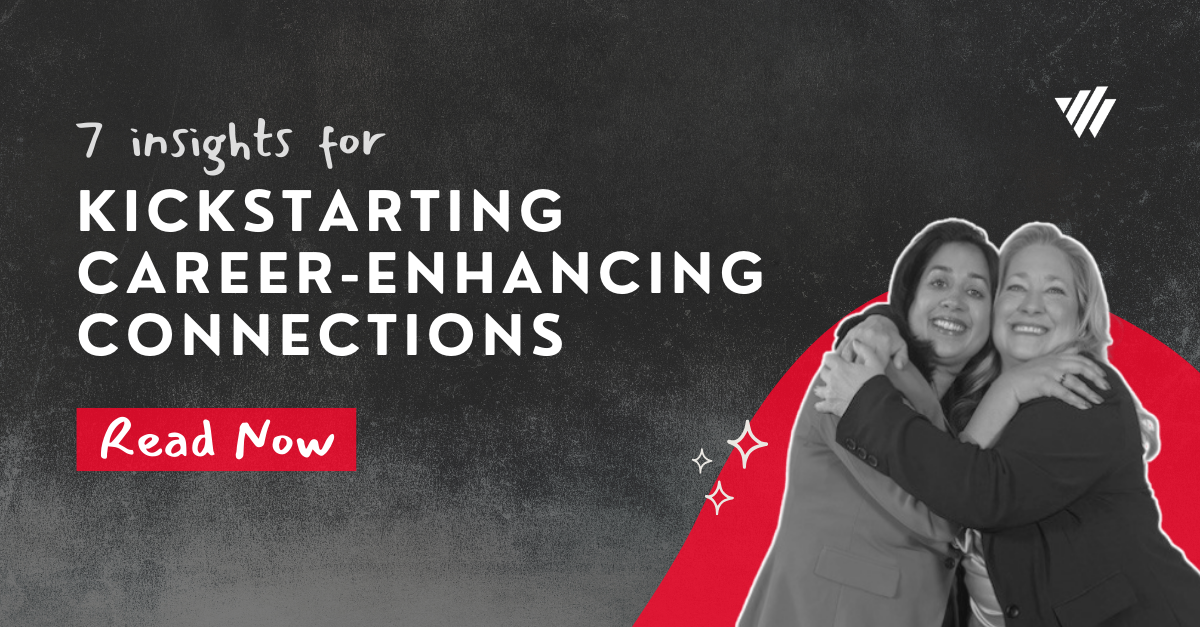Sara Woggerman & Vaishali Rao are industry besties who've built a relationship that's taken both of their careers up a level. Want to create connections that do the same for you? These are the top 7 things you need to know.
.png?width=400&height=400&name=Erin%20Kerr%20image%20(1).png)
1. Identify your networking goals and needs.
Clarity is key. Before connecting, ask yourself, "What am I hoping to gain from this connection?" This self-awareness will help guide your efforts and ensure you're prepared to articulate your needs when the opportunity arises.
2. Curiosity helps connections thrive.
Don’t go straight for business. Get to know the person first. People remember when you ask great questions and make them feel seen, heard, and important. This curiosity then makes following up easier since you have things to check in about.
3. Practice making your ask.
Many of us hesitate to make direct requests or "asks”. However, overcoming this hesitancy is essential for building professional relationships that drive business and personal growth. This might feel uncomfortable, maybe even slightly icky, at first, but the more you ask, the less of a pain point that becomes.
4. Share your professional value early and often.
Connecting on a personal level is memorable, but it's equally important to share who you are professionally. Don’t be afraid to share your current projects, your goals, or your specific needs. This approach fosters a deeper understanding of who you are and opens doors for collaboration and support.
5. Follow-up communication shouldn't be rigid, generic, or solely sales-oriented.
It’s great to have a follow up plan, but don’t fall into the trap of being overly formulaic. That approach is often impersonal and ineffective. Instead, follow-up should be organic and personalized. Take note of personal details shared during conversations, such as birthdays, family events, hobbies, or pets. These details can be used to initiate future interactions.
6. Professional alliances are a two-way street.
Building relationships isn’t solely about what you can gain from others. It’s also about what you can offer in return. Give your time, knowledge, and resources generously. After you invest in someone’s success, they’re more likely to do the same for you.
7. Be transparent in your interactions.
It's okay to admit when you don't remember something or someone. Pretending to know can come across as insincere and create distance. People appreciate honesty and authenticity, even if it means admitting a gap in knowledge. By being upfront and honest, you'll build a reputation for being someone who is genuine and trustworthy.
These insights were originally shared during one of our free professional development workshops. Subscribe to our newsletter for more tips like these and announcements about upcoming events.



-Nov-07-2023-06-38-17-8684-PM.png)